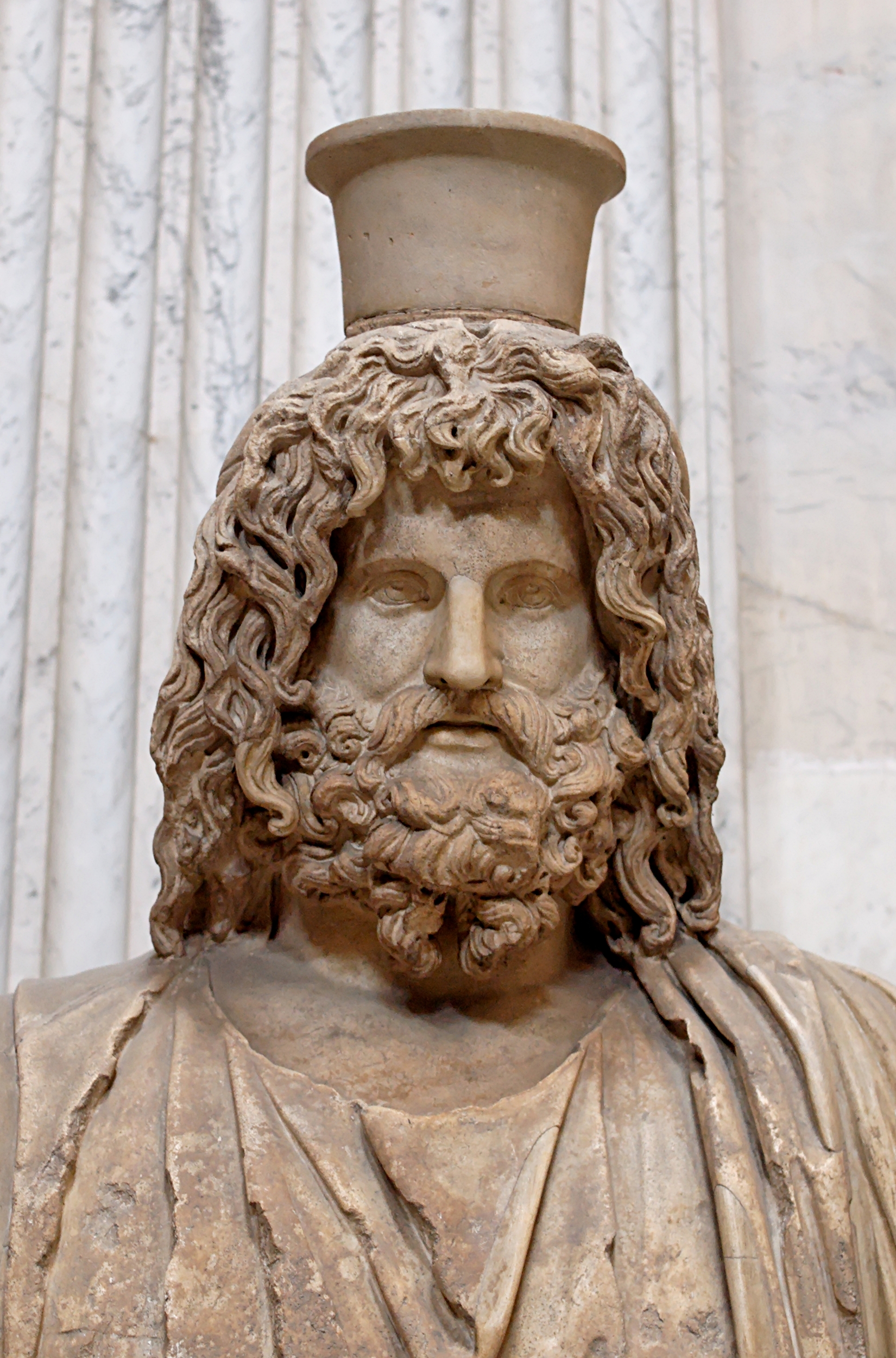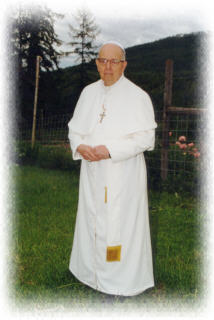They were.
A few.
Down the River
Returning from the Big Apple, TOF reached Rath UaFhloinn late on Saturday night where he slept the Sleep of the Innocent, only to arise early on Sunday and haul his sorry butt down the river to Cherry Hill, NJ, which was playing the part of Philadelphia for cons that can't afford digs in Philly itself.
 |
| The Way South (beyond hill) |
 |
| The Nockamixon Cliffs |
The Nockamixon Cliffs are sheer beauty, not to mention sheer simpliciter, but there are many other pleasant vistas along the way until forced to cross over into New Jersey, which we did via the New Hope-Lambertville Bridge, one of many lovely bridges that span the middle Delaware. A couple by Roebling himself.
At the Con
THE TITLE of the only panel that TOF was scheduled to afflict was God in the Year 3000, the description of which ran thusly:
What is the future of religion? Will religious sects conglomerate as seen in Frank Herbert's "Zensunni and The Orange Catholic Bible"? Or will beliefs splinter as society becomes ever more compartmentalized Is it possible that religion will stay the same over time.The panelists, left to right in the above photograph, were: Brenda W. Clough, TOF Himself, Darrell Schweitzer (mod), Mitchell Gordon, and Ellen Asher.
BLASPHEMY! Darrell opened by announcing that this was the annual Philcon "Blasphemy Panel," but there didn't seem much very blasphemous about it. Blasphemy (14th cent.) is from Old French blasfemer, from Church Latin blasphemare (also in Late Latin "revile, reproach"), from Greek blasphemein "to speak lightly or amiss of sacred things, to slander," from blasphemos "evil-speaking." The word had been introduced into English about 200 years earlier but usage had worn it down to a nub: "blame." A curious case of the same word being reintroduced into the language a second time.
But as G.K.Chesterton noted, "Blasphemy is an artistic effect, because blasphemy depends upon a philosophical conviction. Blasphemy depends upon belief and is fading with it. If any one doubts this, let him sit down seriously and try to think blasphemous thoughts about Thor."
The panelists did not express any particular beliefs (save some fallacious ones on matters of fact) and no one seemed to blame God for anything in particular. So, it would seem that no one actually blasphemed. But when the Late Modern bravely faces the applause of his peers, he likes to think he is being transgressive. Hence, the pretense of blasphemy.
TOF'S THOUGHTS, such as they were, went unspoken for a time for the excellent reason that he could not get a word in edgewise for some while. Queue discipline was not maintained, and panelists interrupted and spoke over-top one another. Not to debate, understand, but to add their own agreements and cite their favorite themes. This is actually fairly typical at SF cons, but recall that TOF had spent the previous day in a symposium of Thomists, and the contrast to the logic and reason in that venue was striking, perhaps even disorienting. At first, TOF's impulse was to smile benignly, sit the tumult out, and wait for the panel to end. But it was, by God!, the only panel on which he had been booked, and he felt an obligation to contribute something and (being of the Flynnish persuasion) something contrarian to the geist of the zeit.
Theme-wise, it seemed to TOF that God in the Year 3000 would be pretty much unchanged from God in the year 2013. Otherwise, He would not be God, but merely a god. (The difference being analogous to that between an impala, a kind of gazelle, and an Impala, a brand of Chevy.) In any case, the panel was described not in terms of God in AD 3000 but rather religion in AD 3000, a considerably different proposition.
OPENING REMARKS are traditionally presented by the moderator asking each panelist in turn to comment on the topic, but Darrell blasphemed the Holy Traditions by simply presenting his own opening remarks and other panelists eventually jumped in to gloss them. No one else ever had the chance to set forth a basic position.
TOF had thought it rather obvious that religion in AD 3000 would be very much like today, simply by projection, or existential inertia. Look back 1000 years and what do you see? Christians, Jews, muslims, Buddhists, Hindus, all of which (save the muslims) had themselves been around already for 1000 years. Go back 2000 years and you lose the muslims, but you gain the Zoroastrians (who survive as Parsees ("Persians") in India). IOW, it seemed clear that major religions, once established, tend to stick around, and are endangered only to the extent that they are tied too closely to a particular ethnic group. (Few folks outside Persia were devout Zoroastrians. In fact, few folks outside the Persian ruling class were. Once the Persian state was toppled, Zoroastrianism withered.) Universal religions, especially proselytizing universal religions, have a better chance of making it. (This is not an example of proselytizing.)
| SF cons feature parties on Saturday nights. Sure. Attend Philcon next year and check it out. |
Lactantius derives religion from religare (to bind): "We are tied to God and bound to Him [religati] by the bond of piety, and it is from this, and not, as Cicero holds, from 'careful consideration' [relegendo], that religion has received its name" (Divine Institutes, IV, xxviii). When we note that various groups carry out quasi-religious rituals to reinforce their fellowships, we can see an easy extension of re-binding rituals to all sorts of non-theistic associations. One thinks of Masonic lodges, Communist parties, and even fraternities and sports teams. Not to mention SF cons. This was the role of the pagan gods, whose priests were elected officials of the cities. They served to bind the citizens to one another and their polis.
Religio is thus distinct from ekklesia (church), an assembly, although a relationship between them can be discerned. Thus the future of religion is distinct from the future of particular churches. These may schism or rejoin without affecting their religious contents.
Did the panel consider such things? Let me repeat: it was an SF con.
 |
| Serapis the pot-head |
A similar, if briefer, such incident was the establishment of Temples of Reason by the French Revolution. When Catholicism was banned in 1792, many church buildings were converted into Temples of Reason and services were held in worship of Reason. This was naturally followed by the Terror, when the devotees of Reason began rationally to chop off the heads first of those who opposed them, then of those they thought might one day oppose them, and finally of one another. Think of these as the human sacrifices of the new paganism of Reason. The Cult of Reason was later banned by Robespierre who replaced it with his Cult of the Supreme Being and lopped off the heads of the leaders of the Cult of Reason, proving (one supposes) that even atheists can have schisms. In a shorter period of time, the Rationalists had executed more people per annum than the Spanish Inquisition had for most of its history.
Scientology, another faux-religion, is already showing signs of collapse and may not last the decade.
None of this was brought up on the panel, however, beyond the observation that such artificial churches could pop up at any time. Yes, they can. And pop down, too.
DISCUSSION. One panelist persisted in reading his remarks from several closely-spaced pages of handwritten text. As near as TOF could determine, he was committed to a New Age version of Baha'i. Therefore, he made no ripple on the surface of the SFian noösphere. Otherwise, several standard myths were mentioned at one time or another during the panel and are noted here in no particular order.
 |
| Behold! There are many different elephants. |
'Sooth, it would be strange if there were not some disagreement on God, ourselves being somewhat blind to that sort of thing. Yet all Christians agree that however different their viewpoints, they are different viewpoints of the same entity. The Catechism of the Catholic Church goes so far as to recognize that both Jews and muslims indeed worship the same God as do the Christians.
2. There are many different Catholic religions. This was another bizarre statement that was simply asserted, never explained, let alone substantiated. One would suspect it of being a "meme" that has been caught and passed around like a bad head cold; or one would if there were any such things as "memes."
The statement was also made regarding the "many different" Orthodox Churches, which was astonishing, inasmuch as the Orthodox Church generally flies under the radar of such folks.
The confusion may lay in equating distinct rites or autocephalous branches with "religions." The Orthodox Church contains various independent national bodies: Russian Orthodox, Greek Orthodox, Bulgarian Orthodox, and so on. However, they are all of the same religion and hold the same beliefs in the Holy Traditions and the supervisory primacy of the Ecumenical Patriarch. The same goes for the Maronite rite, Byzantine rite, Malankarese rite, Chaldean rite, and so on within the Catholic Church. These are simply distinctions in discipline or liturgical practice. The dogmatic beliefs are the same, and all acknowledge the authority of the Pope of Rome. If the panelist meant anything more than this, it was not explained.
 |
| "Pius XIII" Some people are so fascinated with the RCC that they even make up their own fanfic chuches! |
As for sedevacantists and sundry other personal hobbies and religious fanfic, one may as well say that the quondam existence of Joshua Abraham Norton, the self-proclaimed Imperial Majesty Norton I, Emperor of these United States and Protector of Mexico, demonstrates that there is more than one country.
3. Religion stems from the evolved human trait to see patterns even if there are none. Apparently, this belief derives from the tenet of scientism that religion is a failed attempt to do Science!™ That is, religions try to explain patterns in natural phenomena. But the pattern may not be real, only imagined. (Apparently, it promotes reproductive success to have false ideas about the world.) To dismiss pattern recognition in this way is subversive of natural science, as well. Oh, but those are different. Why? Because we can check them against the facts. Why this is begging the question is left as an exercise for Faithful Reader. It was not established by the panel that historically religion actually does stems from pattern-seeking. In this field, empirical proof is not required. One need only toss out a plausible-sounding story. But irrational natural explanations are no less irrational for being natural.
4. Religion as a universal source for harm. True, without religion there would be no wars of religion or religious persecutions, says physicist Stephen Barr, "and without sex, fathers, families, material possessions, and governments, we would not have sex crimes, abusive fathers, dysfunctional families, greed for material possessions, and oppressive governments." So we may suspect such plaints as being slightly off-kilter. Or perhaps overly concerned with the wrong term in the phrase.
Astute Reader will notice that virtually none of the panel's discourse actually addressed the panel's topic, at least so much as TOF recollects. SF con, remember.
Still, had they desired an exercise in blasphemy, there are any number of statements that would have sent them scrambling for pitchforks and torches, or at least for tar and feathers. Just think of the orthodox churches of feminism, environmentalism, socialism, Darwinism, AGW, et al. (And yes, in a different venue, that list would be different. It depends on what one holds as holy.) But no one blasphemes their own most dearly-held beliefs. It is always a tool to be used against the Other.
It is no blasphemy to suppose that a church may go into schism or that some new L. Ron Hubbard will come along in the next thousand years, so as blasphemy, the panel fell short.
 |
| Manlifts facilitate movement from floor-to-floor. TOF used to travel on them when visiting a certain brewery. |
TOF and the Incomparable Marge then tooled across town to visit his Kid Brother* in his new digs, which turned out to be the Most Vertical House in the World. By this we mean that most of the rooms in the house seemed to be staircases.
OK, that was hyperbole, not blasphemy. The house, like several of its neighbors, is built onto the side of a Steep Hill. The yard proceeds in four terraces up from street level, each terrace being two lawnmower swipes wide and festooned with a celebration of shrubbery.
The house continues this theme with a stack of four stories, each of two or three rooms, including twists, turns, and one more-or-less secret passageway. No stairwell ever ran straight. All of them twisted, though never into a full spiral. Presumably this was so that if one fell, he or she would not tumble all the way down. For the same reason, no two stairwells were lined up but were located at different points about the house. Coming up from the lowest level, you have to go around the corner to find the steps th the third floor; and so from the third to the forth.
TOF liked the layout, but his knees were less pleased. So we suggested a fireman's pole to facilitate at least downward movement through the house. Or better yet, manlifts.**
_________________Life on the Up-and-Down. TOF once lived in what his Mut called a Father-Son-Holy Ghost house. Except for a kitchen and dining area in the basement, below street level, there was a single room on each floor and a spiral staircase in the rear corner. This was a townhouse on Waverly Place in Philadelphia near Rittenhouse Square which he shared with two fellow students during a summer break one year. That was the year we forgot we had a bag of potatoes -- until it called itself irresistibly to our attention.
Waverly Place. ITRC, the houses were painted white back in
the day. Pretty sure it was the second staircase on the right.
Doors in staircase lead down to kitchen.
(*) All of TOF's brothers are Kid Brothers, as Himself is the eldest.
(**) The website at the manlift link proves that no matter how arcane the matter, there is always an enthusiast out there to celebrate it.







I like science fiction, but I loathe most science fiction fans (I'm sure that google-able statement will come back to haunt me some day if/when my novels are published).
ReplyDeleteThe "Bright"-style superficial, ignorant, and self-satisfied dismissal of religion that serves as the cultural norm among fans is among the most grating things I've ever encountered. It's just part of a greater theme of self-congratulating stupidity where mediocrities convince themselves that they are much smarter than they actually are and know better than everyone else who has ever lived. I often get the feeling that a brief impassioned explanation of Chesterton's Gate would be met with a brief pause, a silence, and then a resumption (at louder volume) of the silly point they were previously making. Experience tends to confirm this assumption.
Loathing science fiction fans...I've never gone to a con and several friends have warned me off them, as being rather like the worst bits of Las Vegas crammed into one building. Mostly memorably, a friend who's been to several told me that attending a local Star Trek con & a casual fondness for Klingons would likely get me invited to the sort of evening party that featured "recreational scolding" delivered with Klingon epithets.
DeleteI follow a high-profile publisher's website/blog (probably the one that has just set off Mr. Wright about female characters) and it's only confirmed that I have little common interest with a great many sci-fi readers. It's rather disappointing, actually.
But author blogs are occasionally a lovely thing, this one and a handful of others.
> author blogs are occasionally a lovely thing
DeleteQuite.
Sturgeon's Law applies.
This author is very talented.Because this post is very nice.It can help us a lot.
DeleteIs this SF fans in general or simply those that go to cons?
DeleteAs for Chesterton's gate... Chesterton has actually won a victory on this. It's far more common to make up a reason a tradition was developed than to assume there was no reason.
"That actor -- Captain from Tortuga...?" Peers over edge of balcony at tuxedoed man stuporishly smoking from cigarette-holder as he slowly twists at the end of a firehose.
ReplyDelete"Alan Swann?"
"Yes!" Snaps fingers. "That's it. Alan Swann is beneath us."
"Naturally, he's beneath us," comments his friend.
Such tolerance is entrancing.
I would comment more but I must scurry off to mingle among the rest of the lowlies, because Sturgeon's Law does apply.
JJB